Andrew A. Berlin
Computational Enhancement of Molecularly Targeted Contrast-Enhanced Ultrasound: Application to Human Breast Tumor Imaging
Jun 22, 2020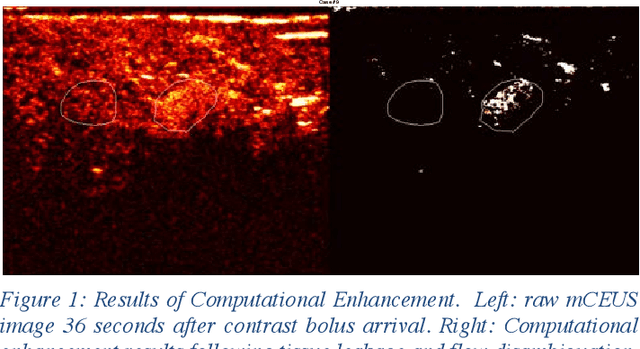
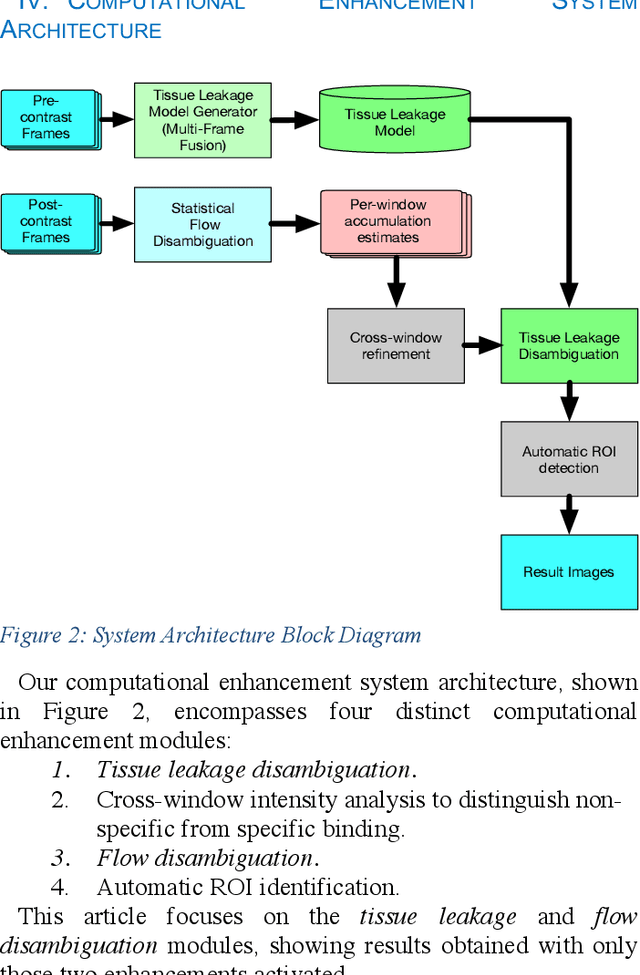
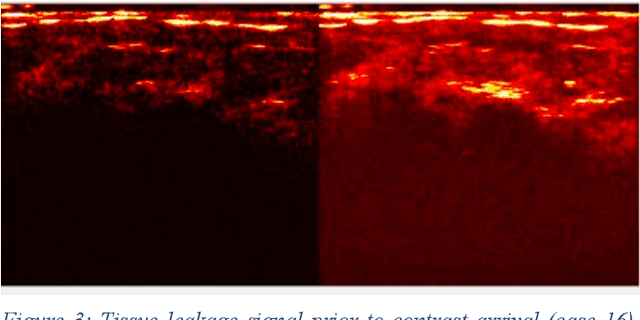

Abstract:Molecularly targeted contrast enhanced ultrasound (mCEUS) is a clinically promising approach for early cancer detection through targeted imaging of VEGFR2 (KDR) receptors. We have developed computational enhancement techniques for mCEUS tailored to address the unique challenges of imaging contrast accumulation in humans. These techniques utilize dynamic analysis to distinguish molecularly bound contrast agent from other contrast-mode signal sources, enabling analysis of contrast agent accumulation to be performed during contrast bolus arrival when the signal due to molecular binding is strongest. Applied to the 18 human patient examinations of the first-in-human molecular ultrasound breast lesion study, computational enhancement improved the ability to differentiate between pathology-proven lesion and pathology-proven normal tissue in real-world human examination conditions that involved both patient and probe motion, with improvements in contrast ratio between lesion and normal tissue that in most cases exceed an order of magnitude (10x). Notably, computational enhancement eliminated a false positive result in which tissue leakage signal was misinterpreted by radiologists to be contrast agent accumulation.
A 3D Probabilistic Deep Learning System for Detection and Diagnosis of Lung Cancer Using Low-Dose CT Scans
Feb 08, 2019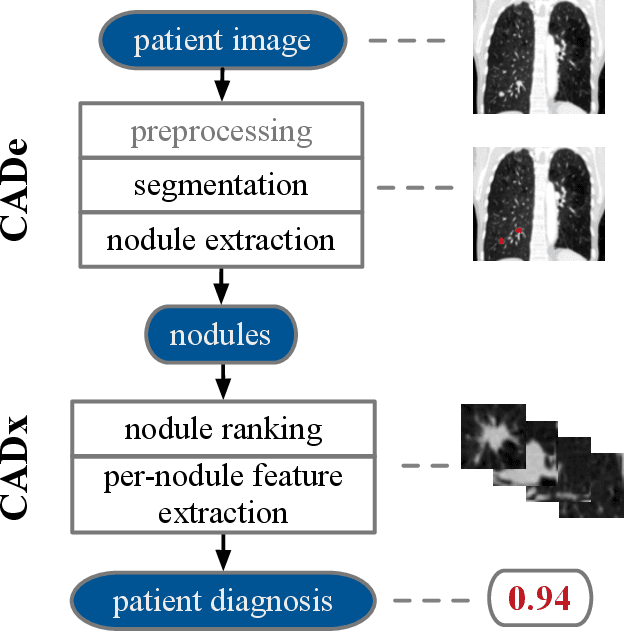
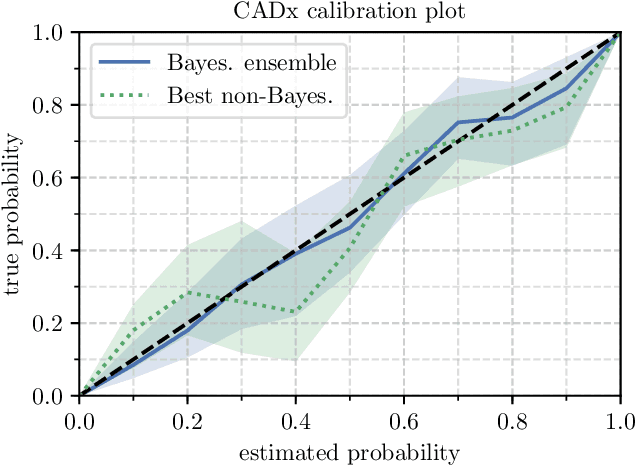
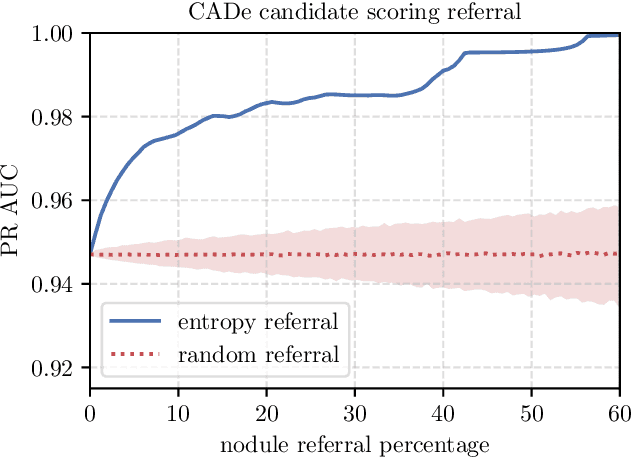
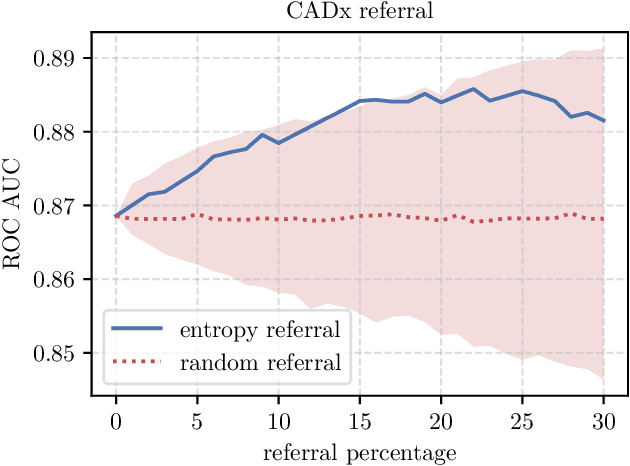
Abstract:We introduce a new end-to-end computer aided detection and diagnosis system for lung cancer screening using low-dose CT scans. Our system is based on 3D convolutional neural networks and achieves state-of-the-art performance for both lung nodule detection and malignancy classification tasks on the publicly available LUNA16 and Kaggle Data Science Bowl challenges. Furthermore, we characterize model uncertainty in our system and show that we can use this to provide well-calibrated classification probabilities for nodule detection and patient malignancy diagnosis. To the best of our knowledge, model uncertainty has not been considered in the context of lung CT analysis before. These calibrated probabilities informed by model uncertainty can be used for subsequent risk-based decision making towards diagnostic interventions or disease treatments, as we demonstrate using a probability-based patient referral strategy to further improve our results.
Propagating Uncertainty in Multi-Stage Bayesian Convolutional Neural Networks with Application to Pulmonary Nodule Detection
Dec 01, 2017
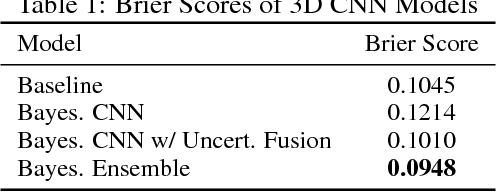
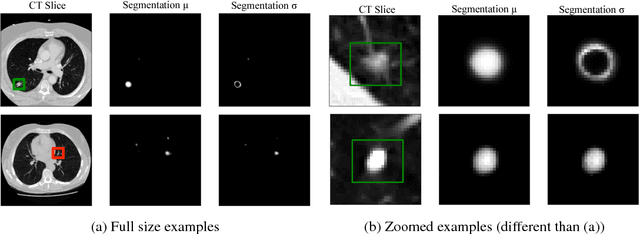
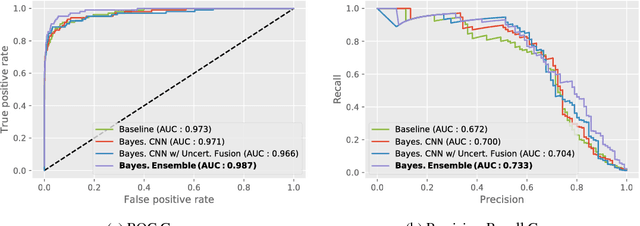
Abstract:Motivated by the problem of computer-aided detection (CAD) of pulmonary nodules, we introduce methods to propagate and fuse uncertainty information in a multi-stage Bayesian convolutional neural network (CNN) architecture. The question we seek to answer is "can we take advantage of the model uncertainty provided by one deep learning model to improve the performance of the subsequent deep learning models and ultimately of the overall performance in a multi-stage Bayesian deep learning architecture?". Our experiments show that propagating uncertainty through the pipeline enables us to improve the overall performance in terms of both final prediction accuracy and model confidence.
 Add to Chrome
Add to Chrome Add to Firefox
Add to Firefox Add to Edge
Add to Edge